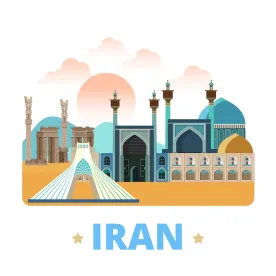On July 17, 2017, the U.S. State Department certified that Iran continues to meet the conditions of the Iran nuclear agreement known as the Joint Comprehensive Plan of Action, or JCPOA. As a result, for the next 90 days, the United States will maintain significant reductions in its sanctions against Iran as provided in the JCPOA. Among other things, those provisions allow non-U.S. companies to do business in Iran. The State Department’s action signals that for now, State believes that the JCPOA is the right U.S. policy toward Iran.
However, it is not clear that the President agrees. In the past, President Trump has called the JCPOA a “disaster,” and “the worst deal ever negotiated.” Nor does the President seem to have forgotten his antipathy for the agreement. Just last week, he told the Wall Street Journal that he “would be surprised” if Iran were in compliance when the next review is conducted in 90 days. Supporting that statement with action, the President has now reportedly formed a new group of officials – less experienced and lower ranking than those previously tasked with the review – to advise him before the next review and certification. We may dub this approach the “Shallow State.”
News analysis indicates that the Trump Administration is actively seeking to undo the JCPOA. The Administration has called for increased inspections in Iran by the IAEA. Additionally, the former White House Press Secretary stated that during the G-20 meeting in July, President Trump affirmatively called on U.S. allies to stop doing business with Iran.[1] Finally, the White House, along with congress, has steadily increased sanctions on Iran for reasons other than Iran’s nuclear program.
Given Trump Administration’s bellicose statements, and a Congress apparently hostile to Iran, we must consider the very real possibility that the JCPOA will be broken. Here we forego abstract considerations and punditry of why and what for, and provide concrete analysis of how and when the JCPOA would be undone.
How and When the Nuclear Deal Could be Undone – A Timeline
- October 2017 – President Trump declines to recertify that Iran is acting in compliance with the JCPOA
The certification signed July 17 will require a renewal within 90 days, which is mid-October. At that point, the President must decide whether to renew the certification. If his statements and actions this week are any indication, he may well decline to renew that certification.
- October 2017 – December 2017 – Congress considers reinstatement of sanctions
If the certification is not renewed, a 2015 act passed by Congress to review and oversee the JCPOA (Iran Nuclear Agreement Review Act of 2015 or INARA) would take effect. Under that law, if the President fails to certify Iran’s compliance with the JCPOA, the Congress has 60 days to introduce a bill to reinstate pre-2016 sanctions. The effective language of that sanctions reinstatement bill is already drafted, and was in fact included in the text of the INARA.
- December 2017 – January 2018 – Expedited procedure for a sanctions reinstatement bill
Under the INARA, congressional committees may only consider the sanctions reinstatement bill for 10 days. All procedural motions related to the bill are waived, and a motion to postpone votes on the bill will not be considered in order. Those fast track provisions would likely keep the new sanctions bill moving quickly through the legislative process, and could have the sanctions reinstatement bill on the President’s desk by the end of January 2018 – even accounting for congressional holiday recesses.
- February 2018 – The President signs legislation reinstating pre-2016 sanctions
If President Trump signs the new sanctions legislation, the reinstatement of pre-2016 sanctions will become U.S. law. That law would be enforced by U.S. government agencies, primarily the U.S. Department of Treasury, Office of Foreign Assets Control (OFAC).
- February 2018 – August 2018 – Non-enforcement period for winding up Iran business
OFAC guidance on the JCPOA states that, if sanctions are reinstated, OFAC will provide “a 180-day period to wind down operations in or business involving Iran” for those non-U.S. companies doing business in Iran under the JCPOA.
- After August 2018 – U.S. Sanctions fully enforced at pre-2016 levels
After the wind-down period, the United States would be fully able to proceed with enforcement of pre-2016 sanctions measures. Of those measures, the most aggressive toward non-U.S. companies are the U.S. “secondary” sanctions. Secondary sanctions are measures aimed at non-U.S. companies doing business with Iran. It was only a few short years ago, but we will pause to remind you of some of the sanctions in effect before the Iran Nuclear Deal. Below is a sampling of measures we are likely to see if sanctions are reimposed:
- General licenses allowing U.S. company subsidiaries to do business in Iran would likely be rescinded;
- Specific licenses allowing the large aircraft manufacturers to sell aircraft to Iran may also be rescinded, or not renewed;
- Secondary financial and banking sanctions, including prohibitions against dealing with the Central Bank of Iran and major Iranian trading, shipping, and oil and gas companies, would be reinstated;
- Secondary sanctions on Iran’s energy and petrochemical sectors, including restrictions on the amount of crude oil that can be purchased by a country from Iran, would be reinstated
- Secondary sanctions on transactions with Iran’s shipping and shipbuilding sectors and port operators, trade in gold and other precious metals, and certain insurance transactions would be reinstated;
- Secondary sanctions on industrial trade with Iran including trade in aluminum and steel, graphite, coal, and software for integrating industrial processes would be reinstated;
- Secondary sanctions on the sale, supply, or transfer of goods and services used in connection with Iran’s automotive sector would be reinstated; and
- Secondary sanctions on associated services for each of the categories above would be reinstated.
What About the International Community?
It appears that the international community is generally supportive of the JCPOA. Non-U.S. companies appear to be profiting from lawful business with Iran, and the promise of a relatively untouched Iranian market is tempting businesses and investors around the world. However, international objections may not have much effect on the course of U.S. action. The JCPOA is not a treaty, it is an agreement. Nothing in the agreement binds the signatories under international law. The United States is free to walk away from the deal if it takes the position that Iran has failed to meet its obligations under the JCPOA.
Business Planning: Hope for the Best, but Prepare for the Worst
Much can happen on the international stage in 90 days, let alone six months or a year. International politics, domestic interests, and even unknown unknowns may shift the course of events and provide continuing opportunities for non-U.S. companies investing or invested in Iran. The timeline above is not set in stone (or even paper, for that matter).
Non-U.S. companies conducting or contemplating business in Iran do not need to suddenly halt. However, they should plan for the possibility of an end to the JCPOA and plan accordingly. Careful planning with the help of expert analysis and current information can help, even where the path forward is not yet certain. We will continue to monitor developments and report on them here.
Julien Blanquart assisted with this article.
[1] That request could be considered a violation of JCPOA Article 29, which states that the United States . . . will refrain from any policy specifically intended to directly and adversely affect the normalisation [sic] of trade and economic relations with Iran.”




 />i
/>i
